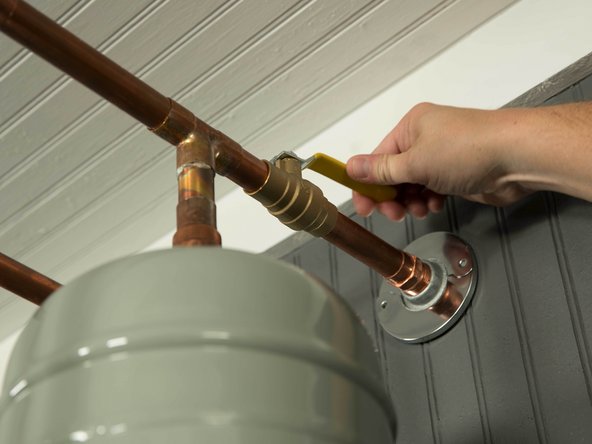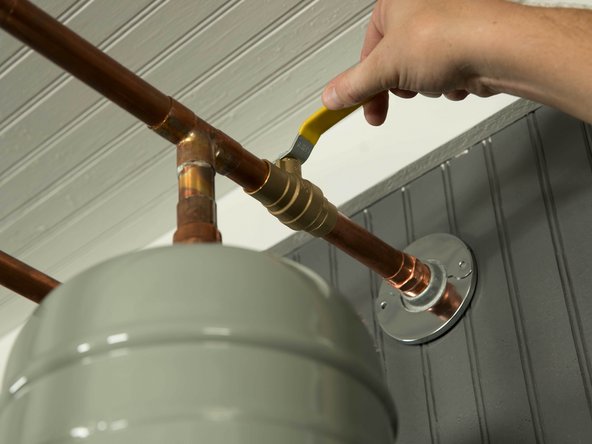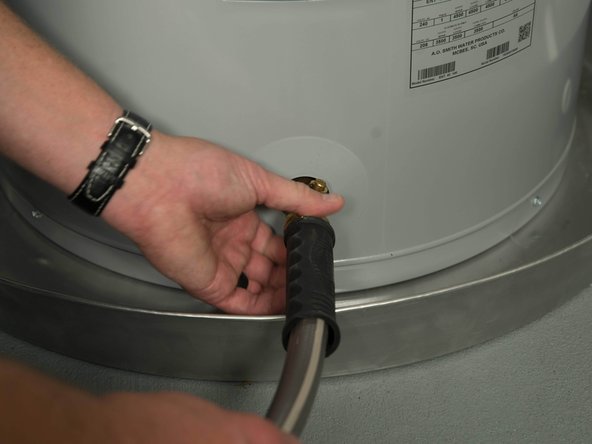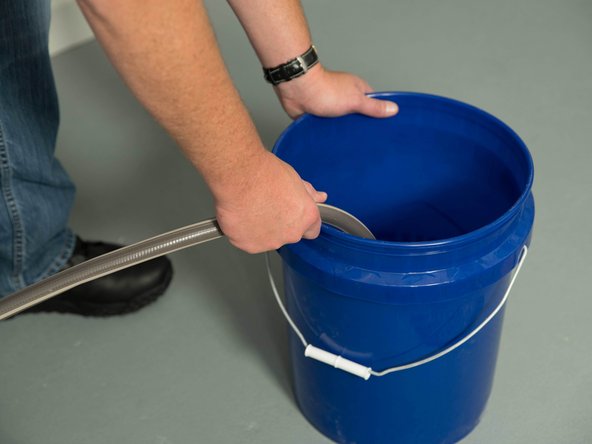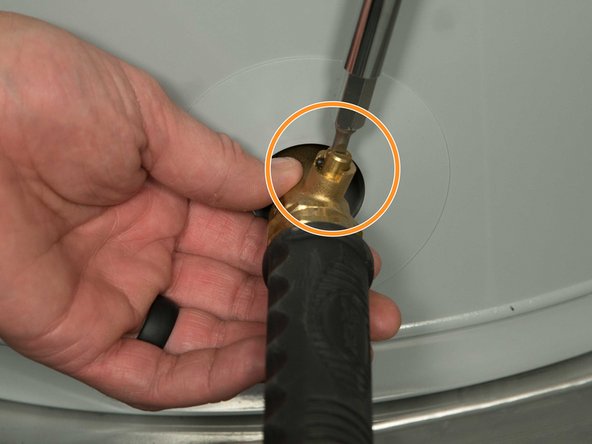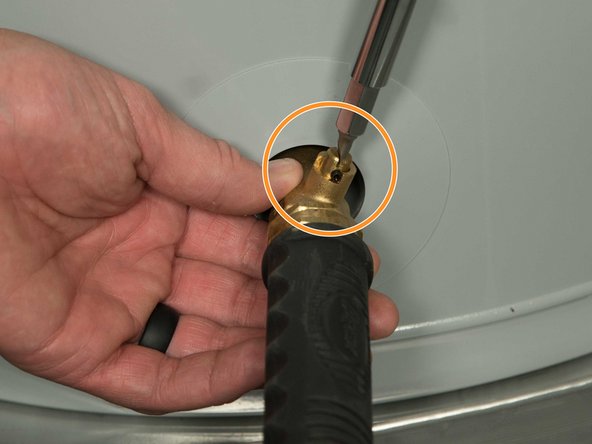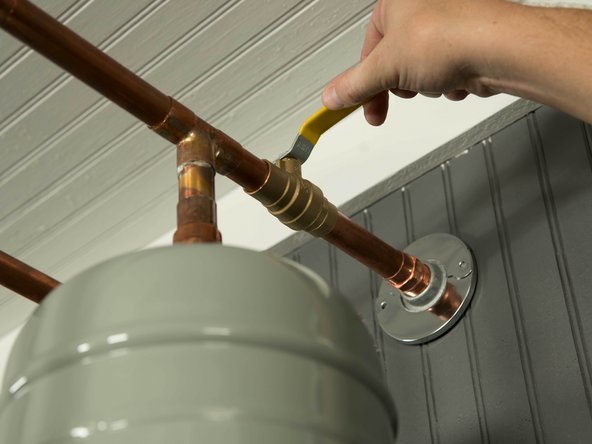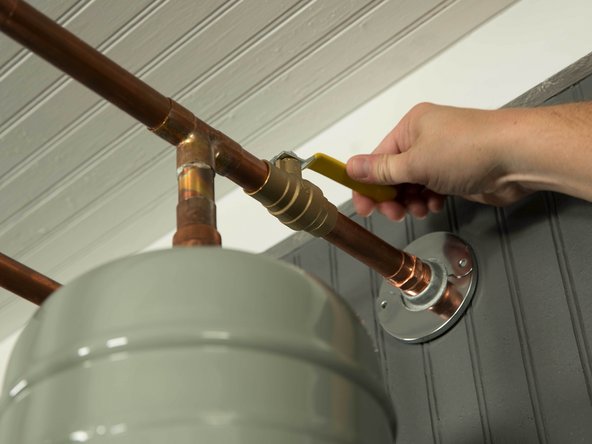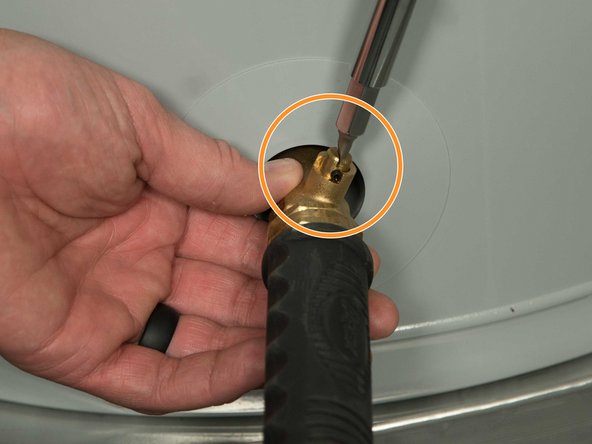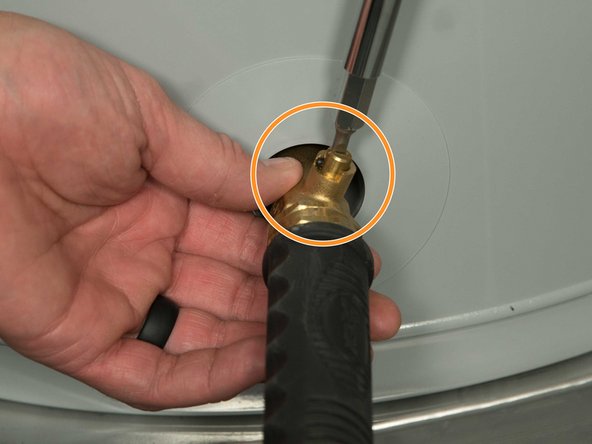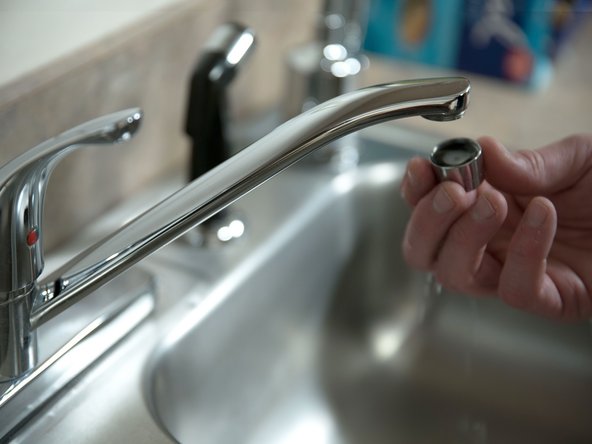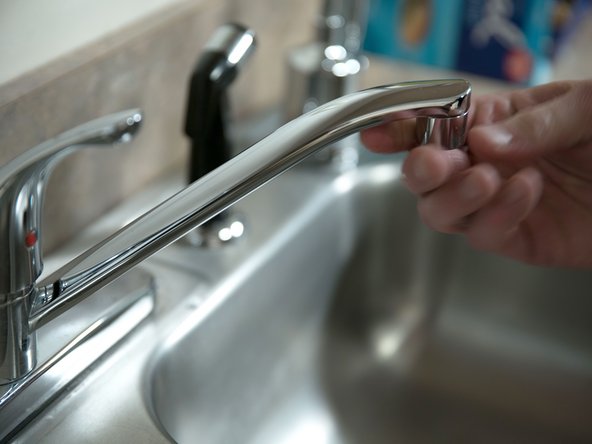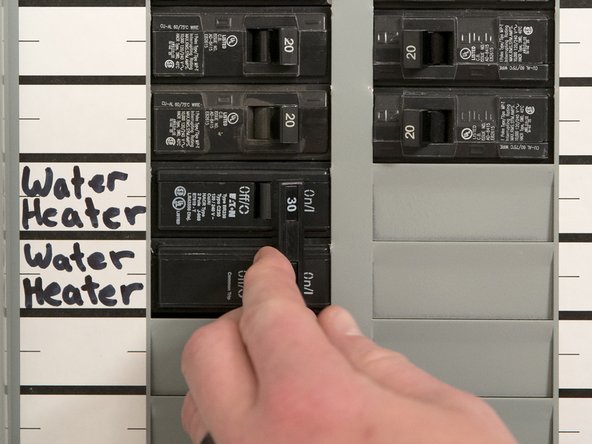Introduction
The information on this web site is supplemental to the printed instructions that came with your water heater. To reduce the risk of property damage, serious injury or death, read and follow all labels on the water heater and the safety instructions in the printed owner's manual.
Parts
No parts specified.
-
-
Garden hose
-
Non-contact circuit tester
-
Flat-blade screwdriver
-
Bucket (optional)
-
-
-
Locate the water heater's circuit breaker and turn it OFF (or remove the circuit's fuses).
-
WARNING! Before working on the water heater, use a non-contact circuit tester or volt meter to make sure power is off. Working on an energized appliance can cause electrical burns, electrocution or death.
-
-
-
Open a hot water faucet and let the hot water run until it is cool (this may take 10 minutes or longer).
-
WARNING! Be sure the water runs cool before draining the old water heater to reduce the risk of scalding.
-
-
-
Turn the cold water supply OFF.
-
-
-
Connect a garden hose to the water heater's drain valve and place the other end of the hose in a drain, outside, or in a bucket.
-
-
-
Open the drain valve on the old water heater.
-
Some drain valves may be opened with a handle but others require a flat-blade screwdriver.
-
Let the water heater drain completely.
-
-
-
Opening a hot water faucet will help the tank drain faster.
-
-
-
Sediment in the bottom of the tank may clog the drain valve and prevent it from draining properly. If you can't get the tank to drain, contact a qualified person for assistance.
-
-
-
Once the tank has been drained, turn the cold water supply back ON and flush the tank until the water runs clear.
-
-
-
When you're done, close the drain valve and remove the garden hose.
-
-
-
NOTICE: Do not turn electrical power on unless you are sure all of the air is out of the tank and the tank is completely full of water. If power is applied before the tank is completely full of water, the upper element will burn out (dry fire).
-
To remove air from the tank and allow the tank to fill completely with water, follow these steps:
-
Remove the aerator at the nearest hot water faucet. This allows any debris in plumbing system to be washed out of the pipes.
-
-
-
Open a hot water faucet and allow the water to run until it flows full stream.
-
Let the water run full stream for THREE MINUTES to get all of the air out of the tank.
-
You must remove all the air from the tank and allow the tank to fill completely with water before connecting electrical power.
-
-
-
After all of the air has been removed from the tank, close the hot water faucet and replace the aerator.
-
-
-
Turn the power back ON at the circuit breaker (or replace fuses).
-








